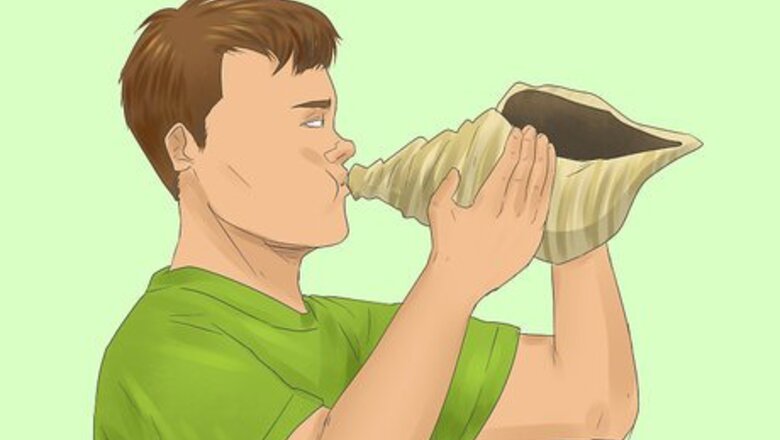
views
Blowing the Conch
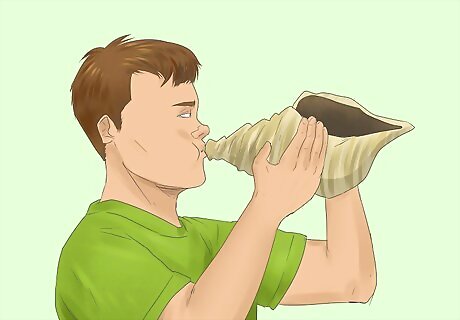
Hold the hole at the top of the conch up to your lips and pucker them tightly. Position the conch in your dominant hand so that your fingers are covering any holes in the shell, adjusting them as necessary. Place the top part of the shell where the top has been removed over your lips and purse them together so that your lips are tightly closed in front of your teeth. It may be helpful to wet your lips slightly before you pucker them. Some people find it easier to make their lips vibrate when they’re wet.
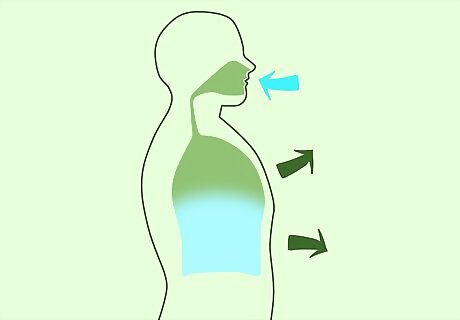
Breathe in deeply from your stomach. Take in a deep breath with your nose for about 5-7 seconds, filling up your lungs. Try not to raise your shoulders as you breathe, and your stomach will likely expand outward slightly. Take as big of a breath as possible without making yourself lightheaded. When you’ve taken a large breath, hold it for a second to prevent yourself from getting dizzy or lightheaded when you blow out.
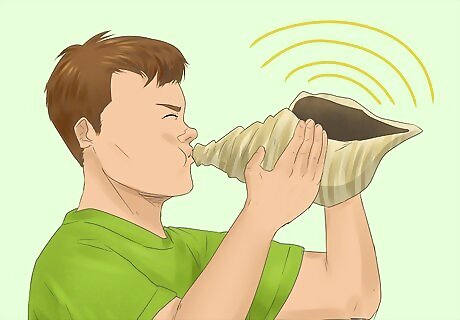
Blow out forcefully through your lips, causing them to vibrate. Use your stomach muscles to blow the air out of your lungs through your mouth, keeping your lips close together. Your lips should vibrate slightly, causing the conch to make a noise like a horn. If you’re doing it correctly, it should feel like your lips are “buzzing.” If your lips aren’t vibrating, try puckering them tighter or loosening them slightly to cause them to vibrate. It may also be helpful to tighten your cheeks slightly, like you’re smiling, as you blow on the conch.
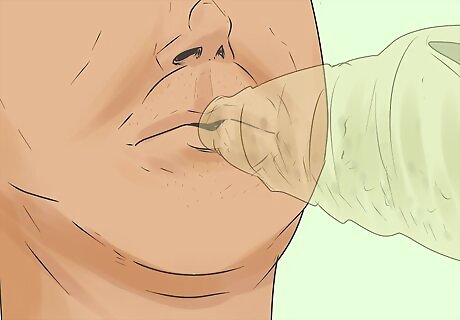
Adjust the pitch by loosening your lips or moving your tongue. Move your lips into a position where they’re protruding slightly, like you’re blowing a kiss, to lower the pitch of the conch. Slide your tongue just behind your upper front teeth to force the air through your lips faster, causing the pitch to become higher. Remember to keep taking deep breaths each time you blow into the conch. If you get winded or tired, take a break before trying again.
Making a Conch Horn
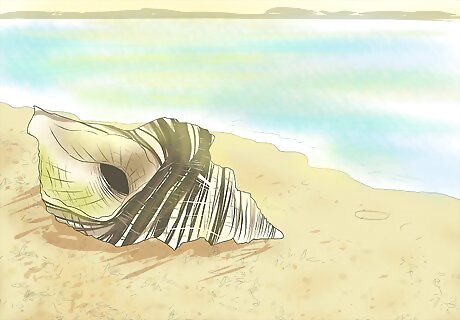
Search on the beach for a conch shell early in the morning. Walk along the shoreline and look for a row of seashells that washed up in the high tide overnight. Most of the shells on the beach will be near this line, and you might be able to find a conch if you get there as the sun rises. Conches have a spiral “crown” on their top, and a long curl at the bottom of the shell. The best time to find conch shells is after a storm with strong winds, since the winds and tides tend to carry the heavy shells farther up onto the beach than usual. It’s common to find different parts of conches on the beach, like the tops, since they’re easily broken.
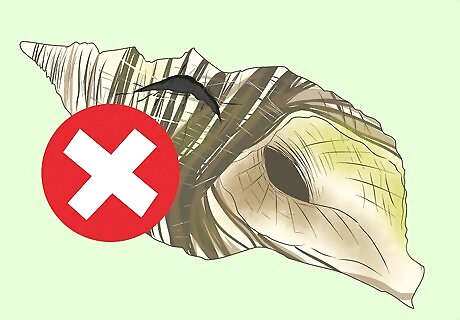
Check the shell for large cracks and holes. Most conch shells have a small hole at the top around the spiral part of the shell where there was once a small sea snail living. The hole should be small enough that you can cover it with one finger. Make sure the shell doesn’t have any other cracks or holes. Never take a conch that still has a snail living inside of it. If you find a conch with a snail, move the shell back into the water so the snail can survive. A lot of conch shells have very large holes in them because they’re fragile. Try to find one that only has 1-2 small holes that you can easily cover.
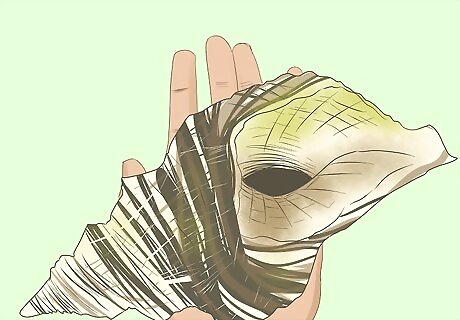
Make sure you can comfortably hold the shell with one hand. If the shell is smaller than the length from the tip of your pointer finger to the bottom of your palm, it’s likely too small to use as a horn. The conch should be slightly larger than your hand, but not so large that you can’t comfortably hold it while covering any small holes in the shell. Holding the shell with 2 hands can change the pitch of the conch or make it slightly quieter.
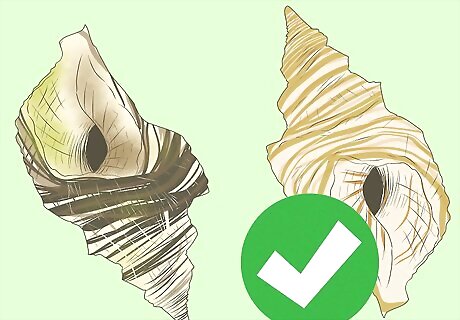
Clean any dirt or debris off of the shell. Start by soaking the shell in water to loosen any dirt, and then mix equal parts bleach and water together. Transfer the shell into the bleach solution, and let it sit for 30 minutes. Rinse it under cool water and rub the shell to remove any additional dirt. If you want to make the conch shiny, let it air dry completely and rub mineral oil or baby oil over the shell.
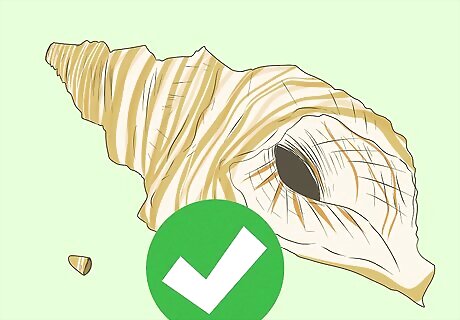
Cut the top of the shells crown with an electric hand saw. Once you’ve found a suitable conch, look at the top of the shell where the curls begin to form. Then, find the 3rd curl from the top of the shell, and use an electric hand saw to cut the top of the shell at that spot. This creates a mouthpiece where you can put your lips to blow into the conch. The hole should be somewhere between the diameter of a dime and a quarter, depending on the size of the conch.




















Comments
0 comment